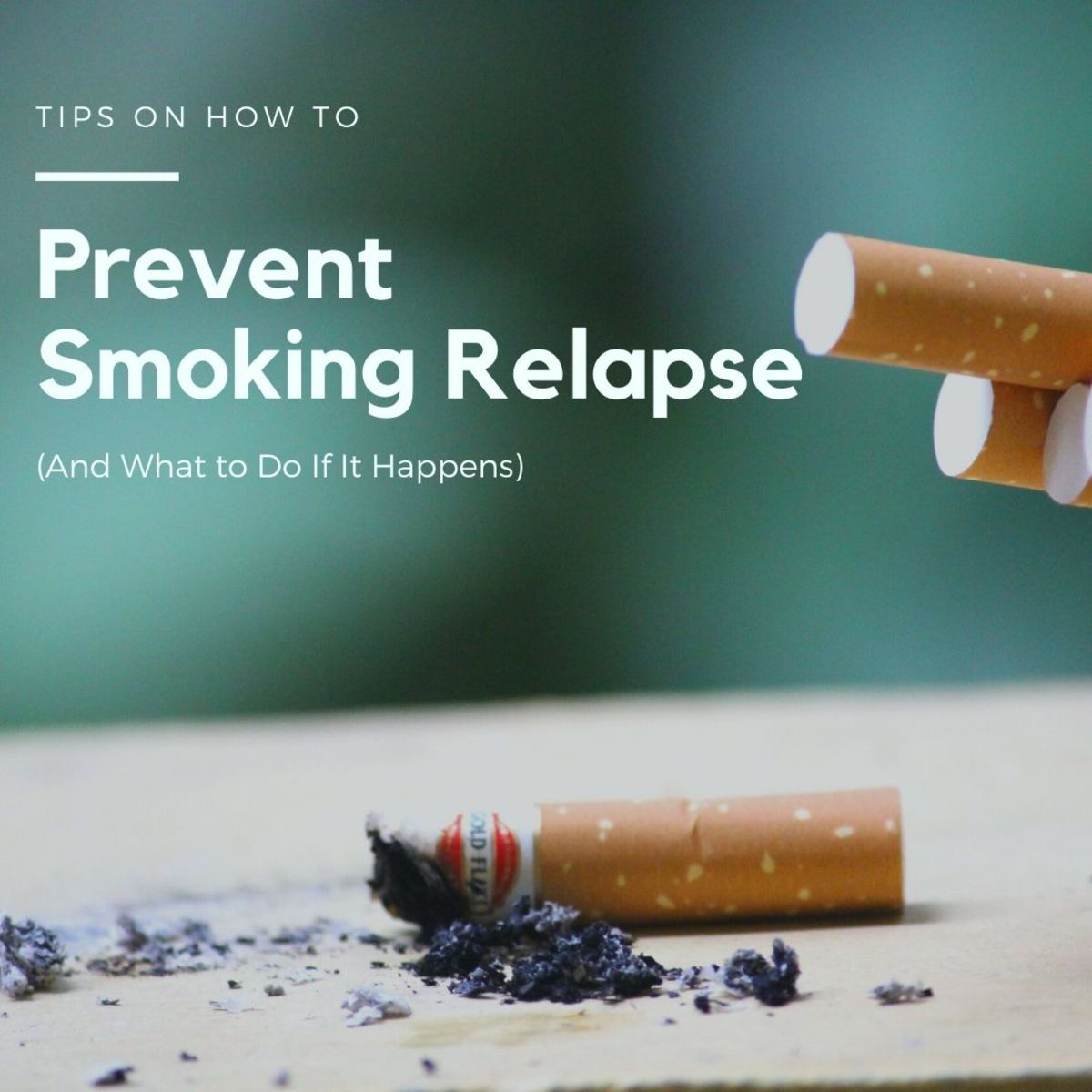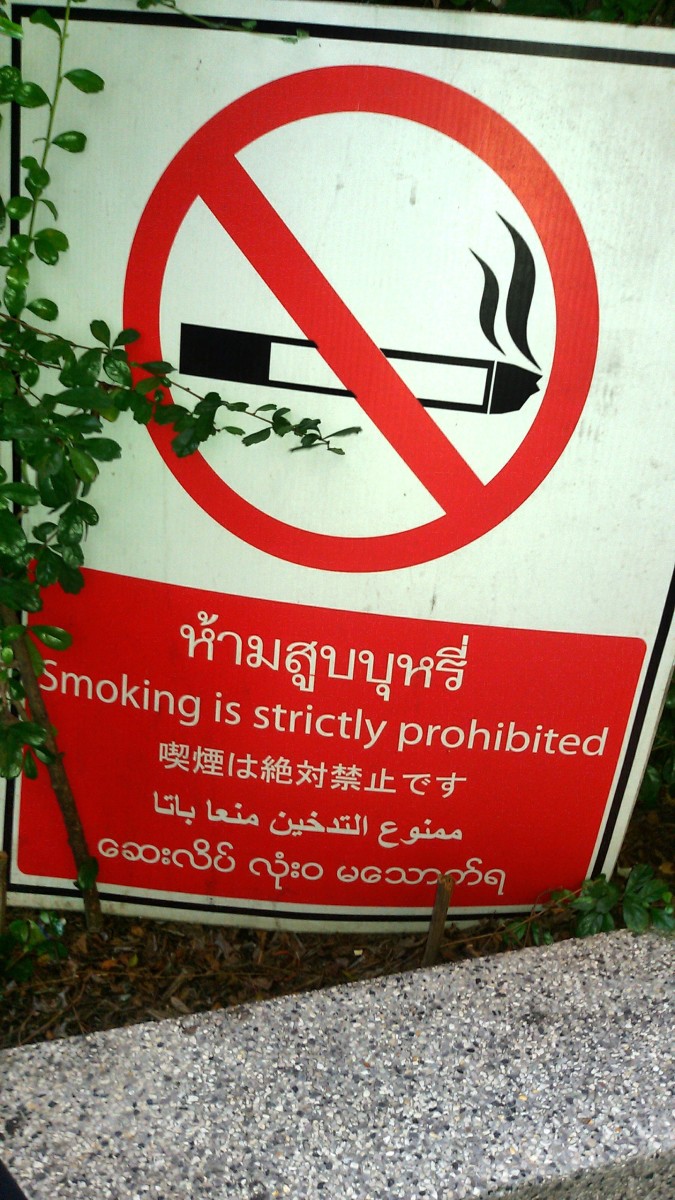How to Help Your Spouse Quit Smoking

Are you worried about the well-being of your spouse who is a smoker? Do you wish to help them quit smoking? If so, there are a few things to remember to be able to support them in their wish to quit smoking. The important thing is that it is they who have to make the decision to quit.
The first step is to accept things as they are. It is important to accept the fact that your spouse has an addiction to nicotine or some other substance. That is a reality. Once the problem has been accepted and identified it is easy to address it. Acceptance smooths many hurdles in a relationship. Your spouse will not feel judged or pressurized to change if you accept him or her as they are.
It is said that it takes 21 days to create a habit and only three days to break it. Hence the effort to adopt a new positive habit has to be consistent and regular. The challenge to overcome addiction is far more complicated. It requires great effort on the part of the person who wants to get over it as well as those who want to support them. Here are some tips:
Tips to Support Your Spouse to Quit Smoking:
- Assure them of your acceptance and your love.
- Agree to some ground rules on where it is OK to smoke. For example, the rule might be that it is OK to smoke outdoors while trying to cut down on the smoking.
- Listen while they talk about quitting, many things are resolved by voicing our concerns and giving your spouse the space to express their feelings will help a great deal.
- Be ready to put up with bad moods. Remember that withdrawal symptoms are temporary. It is good to change the topic or do something to distract them.
- It is helpful to change the routine. Add a few activities that will improve health and well-being like going for regular walks, eating more vegetables and salads, etc.
- Just Be. Take things slowly. Nagging will not help. Expecting immediate results will only increase the disharmony.
- The main challenge is when they slip up. You have to remain positive and encouraging at all times. It is important to remember that it is usual to fail a few times before quitting for good.
- Celebrate minor successes. A good idea would be to have a glass jar and add the money saved ever time your spouse makes a decision not to buy a packet of cigarettes. Then the money can be used to go to movie or buy something they would like to have.
- Take on a few extra duties such as child care, cooking, cleaning, etc to help lighten the stress.
- It is best to ask how they would like to be helped rather than giving advice on what to do.
Quit Smoking and Return Your Body to Health
Did You Know that You Could See Results Within 20 minutes of Quitting to Smoke?
The video 'Quitting Smoking Timeline', shows you just how fast the body can recover — even from years of smoking related damage. Here are the highlights for those who would like to have a list of the benefits after watching the video:
Lasting Benefits of Quitting Smoking – A Timeline
After Quitting
| Benefits and Positive Outcomes
|
|---|---|
Within 20 Minutes
| Blood Pressure, Pulse Rate and Temperature of your hands and feet become normal.
|
8 Hours
| Nicotine levels in your blood drops down 93.25%
|
12 Hours
| Oxygen levels increases to Normal
|
12 Hours
| Carbon monoxide drops to Normal
|
24 Hours
| Quitting related Anxieties Peak
|
48 Hours
| 1) Damaged nerve endings are Regrows. 2) Sense of Smell and Taste return to Normal. 3) Anger and Irritability Peak
|
72 Hours
| 1) Body is 100% Nicotine Free. 2) Bronchial Tubes and Lungs Relax, you breathe easier
|
5-8 Days
| Having 3 Cravings to Smoke Each Day and No Craving lasts longer than 3 Minutes.
|
10 Days
| Less than 2 Cravings to Smoke Each Day Each Less than 3 Minutes
|
2 Weeks
| Blood Circulation in Gums and Teeth as of non-smoker
|
2-4 Weeks
| Anxiety, Impatience, Insomnia, Restlessness and Depression are gone.
|
2 Weeks to 3 Months
| 1) Risk of Heart Attack Drops. 2) Lung functions Improves
|
3 Weeks to 3 Months
| Improved Circulation and Chronic Cough disappears
|
9 Months
| Sinus Congestion, Fatigue, Shortness of Breath Decrease. Cilia in the Lungs are Regrown resulting in Increased Energy
|
1 Year
| Excess Risk of Coronary Heart Disease, Heart Attack and Stroke are half of that of a non-smoker
|
5-15 Years
| Risk of having a Stroke same as a non-smoker
|
10 Years
| 1) Risk of Lung Cancer reduced to 30-50% of a Smoker 2) Risk of Death by Lung Cancer reduced by half. 3) Risk of Pancreatic Cancer is the same as a non-smoker. 4) Reduced Risk of Mouth, Throat and Esophagus Cancer
|
13 Years
| Risk of Tooth loss same as a non-smoker
|
15 Years
| Risk of Coronary Heart Disease same as non-smoker
|
20 Years
| Risk of Death from Smoking Related Causes same as a non-smoker
|

You are Their Greatest Support
The most important thing to remember is to avoid what is called 'enablers'. These are others smokers or those who will say it is OK to have one smoke now and then, which will start off your spouse who is trying to quit.
There are many organizations and online resources to help those who wish to quit smoking. There are also many alternatives that the quitter can use during the transition to completely quit. The most valuable thing they can have is your support.
The longer a person goes without smoking the healthier the body becomes. It is important to be focused on the positive outcomes of quitting the smoking habit to help you support your spouse better.
Resources to Help You or Your Spouse to Quit Smoking
- Quit Smoking -- How to Quit Smoking Tobacco & Cigarettes
Founded in 1997, QuitSmoking began as a platform to promote smoking cessation online. 74% of smokers say they would like to quit, but only 3-5% succeed in quitting without assistance. QuitSmoking.com offers the needed assistance and support to quit. - Smokefree.gov
Smokefree.gov is intended to help you or someone you care about quit smoking. Different people need different resources as they try to quit. The information and professional assistance available on this Web site can help to support both your immedia - Tobacco-Related Cancers Fact Sheet
Quick facts and statistics on tobacco use and related cancers. Besides lung cancer, tobacco use also increases the risk for cancers of the mouth, lips, nasal cavity (nose) and sinuses, larynx (voice box), pharynx (throat), esophagus, etc... READ MORE - Helping a Smoker Quit: Do’s and Don’ts
Tips for friends and family of a smoker who's trying to quit. This is a very informative website of the American Cancer Society.
Meditation Can Help Lower Stress while Quitting Smoking
- Easy Meditation Tips
Meditation can be practiced by anyone and it is easy to begin a daily practice. Learn about the obstacles and how you can make it easy for yourself to practice a simple form of meditation. - How to Practice Mindfulness of Your Body States
It has been found that practicing mindfulness improves both mental and physical health. Learn in four simple steps on how to understand, accept and be aware of your body and mind. - How to do Breathing Exercises
Each breath taken changes the human body in a way that we do not fully understand. Breathing exercises not only help with physical health but also emotional, mental and spiritual well-being. - Stress Relief When Meditation is Difficult
The most important thing is our attitude that determines whether we suffer from stress or transform like charcoal into a diamond under the pressure. Find out what are the signs of stress. Four tips to achieve stress relief by deep breathing, restful - How to Let Go of Stress and Anger
How to learn to Let Go of all those things that are not helpful and allow space to Let Come those things that are beneficial is the secret of dealing with stress and anger. Find out about Meditation to Let Go.









